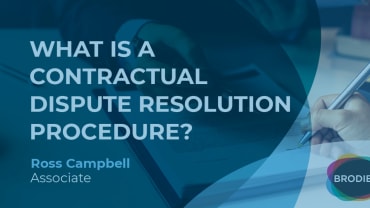Dispute resolution in the UK gambling sector is under review. On the 8th December 2020, the UK government published its policy paper – Review of the Gambling Act 2005 Terms of Reference and Call for Evidence. The aim is to ensure that the sector has up to date legislation, with a strong regulator to oversee a responsible industry that protects players, provides employment and contributes to the economy. While the objectives and scope of the review are wide ranging, one particular focus for the call for evidence is the issue of consumer redress.
Growth of the gambling sector
It was always going to be a fair bet that when the Gambling Act 2005 came into effect in September 2007, the gambling industry in the UK would enjoy significant growth. Unsurprisingly, technological advances resulting in the availability of online remote gambling facilities has played a significant role in this growth. According to the Gambling Commission, the industry currently employs almost 100,000 people in the UK and generates £3bn per year to the government in taxes. It also contributes widely to sport and to the advertising industry. In short, gambling is now a significant sector of the UK economy.
The current regulatory framework
The Gambling Act 2005 currently provides a regulatory framework by setting clear rules to be followed by licenced operators throughout the sector. Where an operator is found to be in breach of these rules, they may be subject to enforcement action by the Gambling Commission as industry regulator. General and individual licence conditions applied by the Commission as well as conditions applied by statute are required to be met by operators. Codes of Practice published by the Gambling Commission must also be met. These include;
- Social responsibility code provisions which must be adhered to by all licence holders;
- Ordinary code provisions – these do not have the status of licence conditions but failure to take account of them can be used as evidence in criminal or civil proceedings.
Existing options for consumer redress
The route for individual consumer redress in relation to a breach of the social responsibility code, takes place primarily through the courts. Where an individual consumer seeks redress relating to an alleged contractual breach where a dispute relates to a licenced operator's terms and conditions, an alternative dispute resolution (ADR) mechanism is already in place. Licensed operators must nominate an approved provider of (ADR) services (such as the Independent Betting Adjudication Service) to rule on issues where the complainant is not happy with an operator’s response. ADR services are provided free of charge to consumers, and their rulings are binding upon operators in cases with a value of up to £10,000.
A new Gambling Ombudsman?
The December 8th policy paper and call for evidence has identified that;
'While redress through the courts is a common mechanism across the economy, some other sectors have particular vehicles to facilitate easier consumer redress, such as an ombudsman.'
While any suggestion that the gambling sector is likely to find itself with a new ombudsman may be premature, the government may look to other sectors where ombudsman services provide effective dispute resolution. The call for evidence has also indicated that suitable consumer redress models may be found internationally.
The deadline for responses to the call for evidence closes on 31st March 2021 and we will have to wait to see the outcome when the government publishes its white paper later next year.
Contributor
Trainee Solicitor












